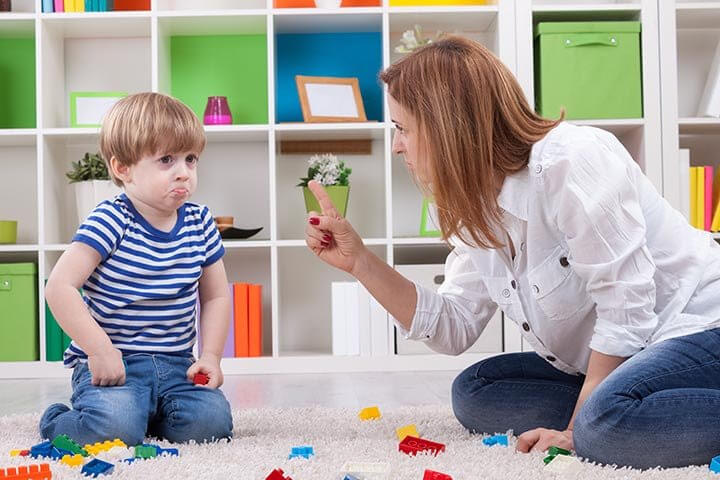Parental guide to different type of parenting style
different type of parenting style
ALL TOPICS
- Parent Monitoring Tips
- Monitoring Apps
- Social Media Parental Control
Sep 11, 2024 Filed to: Parent's Guide Proven solutions
Since the beginning of time, there is no one particular formula invented for parenting. It is because there are many varying factors to put into consideration before designing an ideal parenting style. For instance, not all kids are the same, people have different cultures and ethics, and not all parents are the same.

However, in this article, we will look at various parenting styles, worst and effective parental styles. Also, we give guidelines on how to deal with poor parenting styles with the help of parental control apps. Here is a rundown of five common parenting styles:
- Authoritative parenting
- Permissive parenting
- Authoritarian parenting
- Attachment parenting
- Free-range parenting
Now, let us look in detail at effective parenting styles, especially during adolescence. Also, some parenting habits you should work on stopping for the proper upbringing of your child.
Keep reading.
Part 1: 3 Effective Types of Parents
More often, a parent desires to bring up their kid in a manner that will enable them to face and conquer challenges that they encounter as they grow up and move out into the world. It is a result of the kind of discipline you use on them in everyday interactions.
Also, it is vital to notice that how you parent you kid has a connection to the parent-child relationship you have with them. The three types of parenting below are usually blended in most families, only that there is a particular approach being dominant.
- Assertive Approach
In this approach, you would be willing to listen but hold firm your ground so that you can achieve a mutual understanding. When setting boundaries, the parents do not get sidetracked. They give options and allow the kid to have a say in finding solutions.
Parents with this parenting style are generally persistent in ensuring the child meets their requests. They listen to their kid’s thoughts, are honest, especially about their feelings, and they politely say no to their children.
Also, parents are usually empathizing. They set reasonable consequences, don’t blame their kids for any wrongdoing, are transparent when making requests, and have flexible rules.
When you employ this parenting style, a healthy parent-child relationship builds. The children realize they can count on you to understand their difficulties and also provide guidance and support. Furthermore, the child’s self-esteem rises as they grow up knowing they are loved. They can contribute to problem-solving and can handle pretty much on their own. This type of parenting enables the child to see you as a source of support. They feel lovable, worthy of being cared, felt understood, and listened to. It develops a sense of trust in relationships, learns to be kind to others, and consider somebody else’s point of view.
Plus, the kid grows up to be independent, responsible, tolerant, understanding, and smart enough to handle difficult situations.
- Authoritative Parenting
These parents are known to have high expectations for achievement and maturity for their kids while being warm and responsive at it. They set rules and boundaries by actively involving their kids and using logic. These parents are mostly affectionate, supportive, and encourage independence.
Authoritative parents are known to earn the respect of their children through developing healthy relationships and problem-solving strategies. The parent-child relationship gets strengthened, and the kids feel free to ask for guidance, support, and advice whenever and wherever.
Kids to such parents grow up knowing what parent wants of them and feel positive they can comply. They can develop healthy relationships with their peers, perform exceptionally well in school, become independent and self-sufficient in their lives. Moreover, the child grows up having better mental health - less depression, anxiety, self-pity, suicidal thoughts, delinquency, alcohol, and drug abuse. They are less violent and slightly happier and content.
This type of parenting is also referred to us Democratic Parenting Style and is most recommended since, by Dr. Baumrind, it is the most successful of parenting styles.
- Free-Range Parenting
In this parenting style, the goal is to foster independence in kids by allowing them greater autonomy with less adult supervision. It emphasizes on the child functioning independently with careful parental control. This method enables enough exploration for children to handle challenges naturally.
The pros of using this particular parenting method include promoting problem-solving skills in kids, enhances creativity, and helps the kid in strengthening personality formation and building confidence. Also makes kids more resourceful and handy around the house and on their own.
It is important to note that Free-range parenting doesn’t mean no form of rules and regulations or boundaries set out for kids. On the contrary, this parenting entails teaching children skills and correcting and guiding them when they make a mistake. Parents using this method of parenting are loving and nurturing in spite of daring to let their kids fall. They sometimes resort to instilling discipline and punishment if natural consequences don’t serve to be a good enough lesson.
However, to utilize this form of parenting, ensure you are well aware of the laws regarding what age of kids are allowed to be left unattended. They vary from one state to another.

Now, how you raise your kid is a personal matter. Tactfully combining all the three discussed above can result in the most effective parenting method, especially during adolescence.
Part 2: 3 Worst Types of Parents
There being no single perfect way to raise kids, some parenting types are downright wrong and unhealthy for both kids and parents. Next, we look at some of these awful inappropriate parenting skills to steer clear of:
- Helicopter Parenting
Helicopter parenting, as the name suggests, is, of course, annoying and uncomfortable more so to the child. In this parenting method, parents are always hovering above the child’s head. They ensure they are involved in every aspect of the kid’s life. For example; their school life, social life, leisure time, they are everywhere, and anywhere their kids are present. These parents never take their eyes off the child, and this is in a very literal sense. Parents don’t trust their kids to be capable of exploring the world around them and handling challenges encountered single-handedly.
Children brought up in this manner are usually dependent on their parents’ care and support so much so that they appear to be never ready for their adult life.
This type of parenting is not suitable for children since the kids grow up knowing they are always a back-up plan, as their parents. It promotes a lack of independence, confidence, and responsibility in their adult life. It affects their relationship with others and may even be a thorn in their marital life.
Parents also get impacted negatively mentally as they end up lacking time for themselves, which results in stress and generally poor health.
- Tiger Parenting
Tiger Parenting is often related to the authoritarian method of parenting. Here, parents are characterized to be highly demanding to their kids in all aspects of life, i.e., academic, social, and leisure life. These parents set high expectations and tight boundaries and expect children to meet these demands perfectly. They don’t involve the kids in any decision making or problem-solving. They expect 100% obedience and achievement without providing any form of guidance or support. Often, such parents demand blind obedience and use stern discipline and punishment to control kids’ behavior.
Children brought up in this way are often unhappy, less independent, insecure, prone to mental issues, and more likely to have alcohol and drug abuse problems. They also have lower self-esteem, perform poorly in school, have poor social skills, and display more behavioral problems.
Parents are made to believe the kids owe them and hence expect them always to be obedient and make them proud. They forget that children have personalities of their own and can’t always do as told, they have opinions and preferences as well. They need their parents to hear them out.

- Bubble-Wrap Parenting
These are overprotective parents. They can’t let their kids go riding with others in the woods or participate in science experiments at school. They wrap their kids in total care and protect them from all dangers they can think of, some of which are imaginary. They enclose their kids in some safe cocoon.
It is not a bad thing being protective towards your kid; however, too much of it is poisonous. It is because kids grow up unprepared for the harsh outside world when they are adults. Kids grow up having no experience of making and learning from mistakes. Their social life is severely affected since they lack social skills.
Parents are affected by constant worrying about insignificant things.
These and other related characters are not healthy for neither the kid nor the parent. Hence we look at how to deal with poor parenting in the section below. Keep scrolling.
Part 3: How to Deal with Poor Parenting Styles
Even in parenting, there is always room for improvement and becoming better at it. Let us look at some of the ways you can employ utilize to be a better parent and maintain a good parent-child relationship.
- To discipline:
Be firm in ensuring consequences are strictly adhered to when the kid misbehaves.
Be fair. Clearly, state out the consequences beforehand to give the kid a heads up on the repercussions of bad behavior. Also, the punishment should fit the wrong deed done.
Be friendly while letting your kid know they have acted up, and now they have to face the consequences laid out for such. Urge them how best to act in the future to avoid punishment, and appreciate them when they do right.
- Parent as a Teacher/Coach
Show them in detail how you would like them to behave and allow them to learn. While at it, give them encouragement, reward, and praise them for keeping up the excellent work and use constructive criticism to help them work on weaknesses. Help them learn how to express themselves and listen to them intently. Hear them out and try to see things from their point of view.
- Use a Parental Control App
This option shouldn’t be your number one option, though. You should be careful when using parental control apps. It is because they can easily break a rather good parent-child relationship already established. There are cases when kids preferred to be talked to rather than remotely monitored.
However, if wisely utilized, they are instrumental in monitoring phone activity, location tracking, cyberbullying prevention, and screen time monitoring, especially in teenagers.
Conclusion
Parenting is a divine task, and you should embrace it wholeheartedly. How you treat your child determines who they become and what kind of parents they will be if they have children of their in the future. With the various types of parenting discussed in his article, you can borrow a thing or two to help you bring up your child in a healthy way. There are tips, here and on the web, on how to be a better parent. Be advised to read widely and find out how best to raise your child.
Avoid too much dependence on parental control apps as they can quickly turn you into a helicopter parent or even worse, a neglectful parent. Be smart.
- Location Tracking & Geo-fencing
- App Blocker & Web Filtering
- Web Filtering
- Screen Time Control
- Smart Parental Control Setting

Ankhi Bhattacharya
contributor Editor